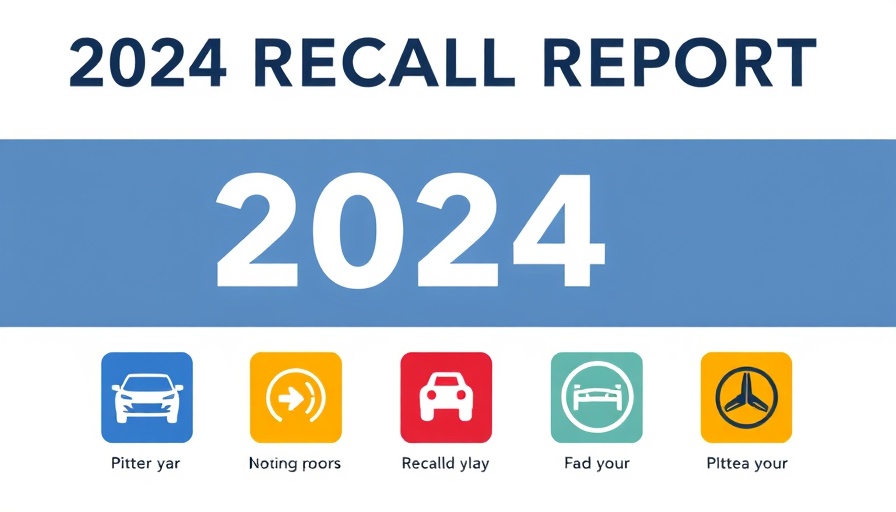
Reduction in Recalls: An Optimistic Outlook
In 2024, the automotive industry saw a promising decline in vehicle recalls, with figures dipping by nearly 18% from the previous year. A study by BizzyCar, referenced in a recent report by the National Highway Traffic Safety Administration, shows that 27.7 million vehicles were affected by recalls, a noticeable reduction from the 33.6 million in 2023. Despite this positive shift, a significant issue remains unsolved: a vast number of unrepaired vehicles still populate American roads.
Unresolved Recalls: A Growing Safety Hazard
With 72.7 million recalled vehicles unaddressed, equivalent to about one-fourth of all registered vehicles in the U.S., the stakes couldn't be higher. This staggering figure highlights an urgent need for manufacturers to enhance quality control amidst increasingly intricate vehicle technologies. The failure to remediate recalled vehicles poses a substantial safety risk and diminishes consumer trust in car reliability. A robust focus on comprehensive quality assurance measures and effective recall management strategies is now critical to restoring confidence and ensuring driver safety.
Technological Trends: Focus on Electrical Systems and OTA Updates
Electrical systems led the recall charge in 2024, affecting 6.3 million vehicles, largely due to the surge in advanced automotive technologies. This trend also plays into the rise of over-the-air (OTA) updates, a more modern solution to recall issues. Notably, Tesla, the most subject to recalls in 2024 with 5.1 million vehicles, resolved all issues via OTA updates, stressing the growing preference for this efficiency-enhancing method.
Honda's Major Recall and Ford's Impressive Turnaround
Among the noteworthy recalls, Honda faced a significant safety issue, recalling about 2.25 million Accord and CR-V models due to a risky faulty fuel injector. On a brighter note, Ford displayed remarkable improvement by halving its recall numbers over two years. As stated by BizzyCar's CEO, Ryan Maher, Ford’s strategic focus on early defect detection and quality assurance has positioned it as a leading example in effectively managing recalls.
Future Predictions and Trends
Looking forward, the automotive industry must brace for evolving trends and potential challenges. As vehicle technology continues to advance, the necessity for innovative recall solutions like OTA updates will become a standard practice. Manufacturers that prioritize safety and quality through proactive measures will stand to gain consumer trust and reinforce their market position, paving the way for a safer automotive future.
 Add Row
Add Row  Add
Add 




Write A Comment